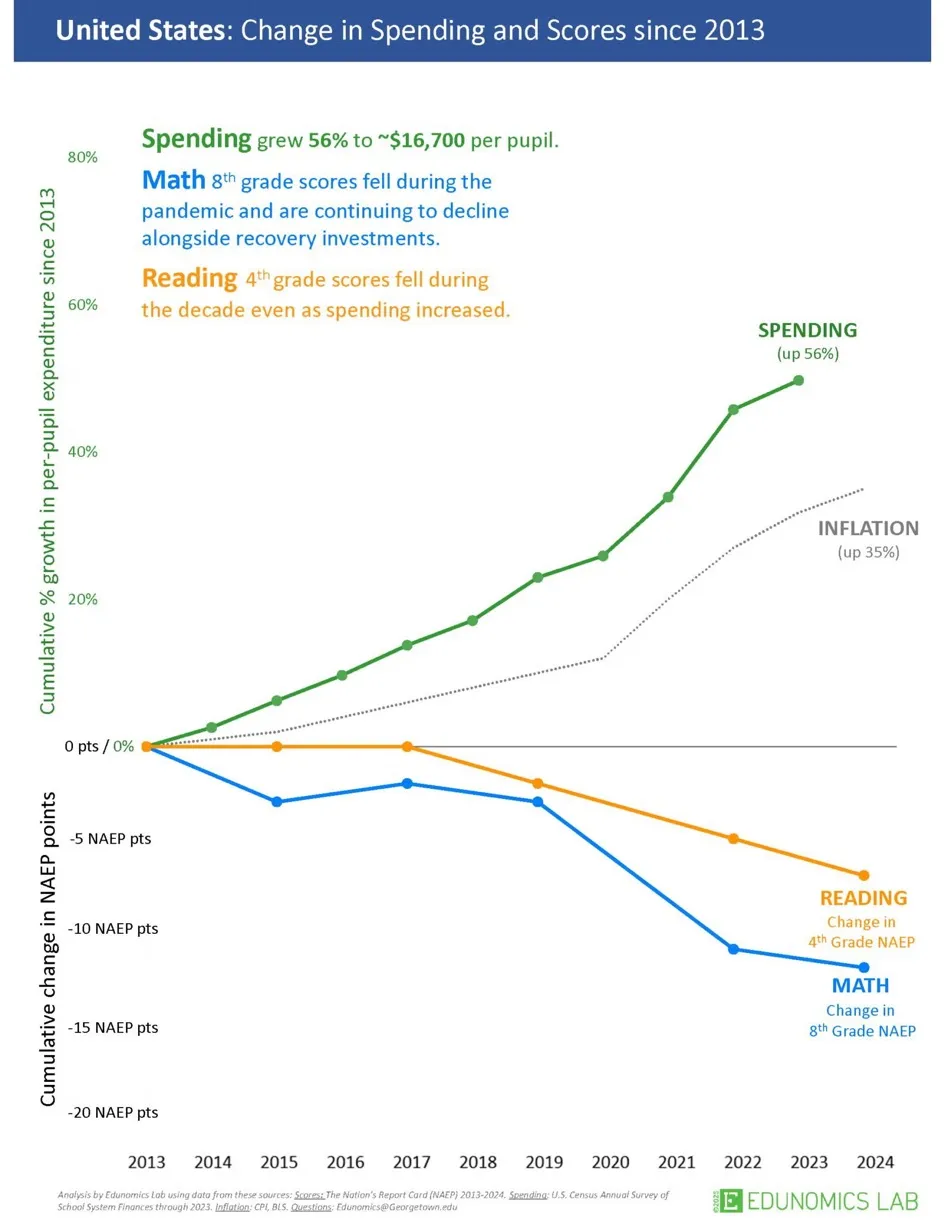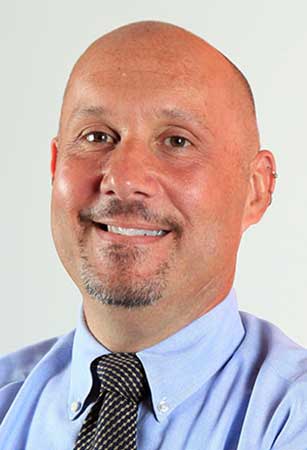BLOG
Profit over Progress? When Market Hype Masquerades as Science, Kids Lose
‘The truth behind the endless “kids can’t read” discourse” gets SO CLOSE to the point. Author Catherine Grady presents a refreshingly nuanced portrait of the national literacy conversation, shining a light on both real and perceived issues around the reading abilities of “kids these days.”
Grady concludes, “US schools have never done a very good job at teaching kids to read, but it seems as though there’s meaningful evidence that we’re doing a worse job right now.”
Kudos to Grady for scratching the surface on this critical issue, but please ask the next obvious question: Why are we doing a worse job than before?

NAEP Scores Nosedive While Spending Skyrockets in the SOR Era
Short answer: Money.
Long answer: Money, corporate interference in schools, legislative corruption, and a never-ending pendulum of market churn to keep schools buying the next magic bullet, currently known as the Science of Reading.
Literacy experts tried to tell you that the Science of Reading movement was headed in the wrong direction.
We pulled out peer-reviewed research, both quantitative and qualitative. They were ignored. We shared numerous examples of how overprioritizing phonics would underprioritize comprehension and were falsely accused of being “anti-phonics”. Lifelong educators who dedicated their lives to student achievement got blamed, shamed, and even ironically accused of greed… all while the Science of Reading grift skyrocketed school spending and tanked achievement.
NAEP scores — though an imperfect measure — have only declined since the Science of Reading took hold, yes, even before the predictable COVID-19 slide. So how does SOR still dominate media headlines as some kind of hero of the Literacy Wars?
If you haven’t figured it out by looking at the nosediving NAEP results, OR the decline of children reading for pleasure, OR the inability of students to read and comprehend long text, OR even the fact that England has reversed course after a decade of structured literacy failures, let me state it plainly:
The Science of Reading that was forced into schools by for-profit interests has done more harm than good.
This isn’t a “told ‘ya so” (though we did). It’s a wake-up call. Read actual research, not soundbites. Listen to actual teaching experts, not edu-celebrities. Sure, docudrama podcasts are entertaining, but they aren’t the peer-reviewed research that should be guiding the education policies our children deserve.
It’s time to turn the focus back to what works instead of what sells. Students deserve comprehensive literacy instruction that accounts for their differences, builds on their strengths, and capitalizes on children’s innate ability to notice, to question, and to make meaningful connections.
We hope authors like Grady will continue to explore why for-profit interests have such a significant influence on schools and politics, despite the abysmally poor results they’ve had on student achievement. And we truly hope she’ll ask the next most obvious question: Will the for-profit interests behind SOR face any consequences for the damage they’ve done? After all, they’ve stolen hundreds of millions of dollars under the promise of reaching 95% literacy rates. Those promises have neither come to pass nor had the research to back up the claims in the first place. Legislators bought into the hype anyway. Media repeated the lie ad nauseam. So, who is really to blame?
As for the damage they’ve caused an entire generation of readers…well, the next pendulum swing will capitalize on that.

Dr. Billy Molasso is the Executive Director of the Reading Recovery Council of North America.
THE JOURNAL OF READING RECOVERY
Spring 2025
OPEN ACCESS: Centering Children and Working Towards Equity: Teaching All Children to Read by Catherine Compton-Lilly
Literacy Leadership in Support of Equity: Whatever It Takes by Allison Briceño
Exploring the Purposes, Power, and Potential of Familiar Reading by Jamie Lipp
Full Circle: From Student to Psychologist by Joyce Romano




